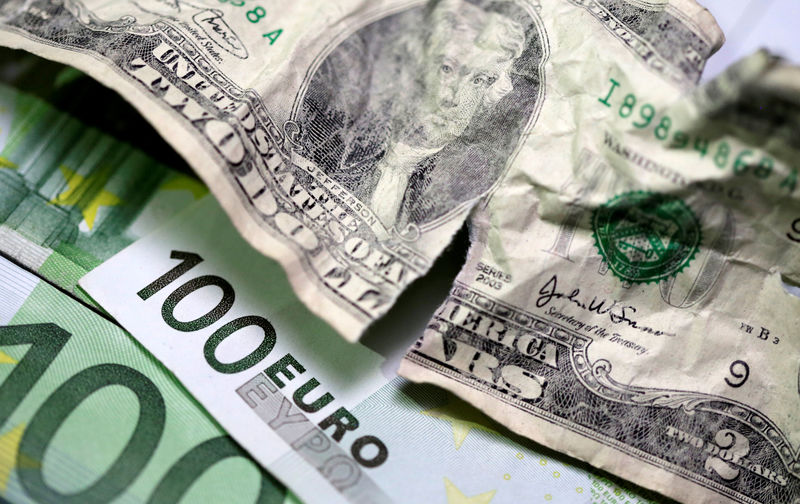Investing.com – The U.S. dollar rose Monday, climbing away from the one-year low seen last week, while disappointing economic activity data weighed on the euro.
At 04:15 ET (08:15 GMT), the Dollar Index, which tracks the greenback against a basket of six other currencies, traded 0.5% higher to 100.925, just above a 12-month low.
Dollar looks to PCE release
The U.S. dollar has recovered to a degree from the selloff in the wake of the hefty rate cut last week, with traders now appearing to write off the chance of a US recession.
“So far investors have bought into the soft landing narrative offered by Chair Jerome Powell last week,” said analysts at ING, in a note. “And instead of the 50bp rate cut spooking equity markets, key benchmarks have continued to push higher.”
That said, Fed futures traders are now pricing in 75 bps in rate cuts by the end of this year, and nearly 200 bps in cuts by December 2025, according to CME FedWatch.
The major economic data release this week is due on Friday, in the form of the Fed’s preferred inflation gauge, .
Analysts expect a 0.2% month-on-month rise taking the annual pace to 2.7%, while the headline index is seen slowing to just 2.3%.
“A 0.1% core PCE on Friday could potentially trigger another leg lower in US rates and the dollar,” ING added.
Euro hit by PMI data
In Europe, traded 0.5% lower to 1.1111, after data showed that German business activity contracted in September at its sharpest pace in seven months, suggesting Europe’s largest economy had tipped into recession.
The , compiled by S&P Global, fell to 47.2 from 48.4 in August, below the 48.2 forecast.
The cut rates for the second time this year earlier this month last week, and further signs of economic weakness could lift the chances of another rate cut in October.
“This is not a great environment for the euro, nor for EUR/USD to push above major resistance at 1.12. Further EUR/USD consolidation in a 1.11-1.12 range seems likely, with downside risks early this week,” said ING.
fell 0.4% to 1.3264, handing back some of the pair’s recent gains after last week hitting its highest level since March 2022.
The held its key interest rate at 5% on Thursday, after kicking off its easing with a 25-bp reduction in August.
“There is a sense that long sterling positioning is quite extreme,” said ING. “Yet the latest CFTC data published last Friday and covering activity to last Tuesday (17 September) actually showed quite a large reduction in sterling longs from the speculative community.”
Yuan slips slightly after PBOC cut
traded 0.1% higher to 7.0595, with the yuan slipping after the People’s Bank of China trimmed its 14-day repo rate to further loosen monetary conditions and support economic growth.
fell 0.1% to 143.72, with regional trading volumes muted on account of a Japanese market holiday, although the yen remains close to its strongest levels for 2024.
The held interest rates steady last week, and said it expected inflation and economic growth to steadily increase.


